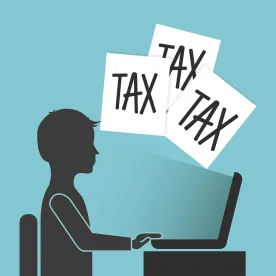As the COVID-19 pandemic rages on, individual and business taxpayers continue to struggle with financial hardships created during these uncertain and unprecedented times. To provide relief to taxpayers during these challenging times, the Secretary of the Treasury and the IRS took a number of actions to provide tax compliance relief to taxpayers, including extending tax return filing and payment deadlines, easing payment guidelines for installment agreements and postponing compliance actions. The relief provided by these measures is scheduled to come to an end on July 15, 2020. Here is what you need to know about this important date.
Income Tax Return Filing and Tax Payments
2019 income tax returns are due by July 15, 2020. If you are unable to complete your return by this extended due date, you can file an request for extension with the IRS that will extend the due date of the return to October 15, 2020. However, an extension of time to file is NOT an extension of time to pay the tax due on an income tax return. So, any income tax due for 2019 must be paid by July 15, 2020 or penalties and interest may apply.
2020 estimated tax payments that were originally due on April 15, 2020 and June 15, 2020 are also due by July 15, 2020. In recent FAQs issued by the IRS with respect to the estimated tax payments due for the first two quarters of 2020, the IRS advises taxpayers to make a single payment in an amount sufficient to cover both the first and the second quarterly estimated tax payments.
More information on filing and payment deadlines can be found at: https://www.irs.gov/newsroom/filing-and-payment-deadlines-questions-and-answers#filing
IRS Enforcement Actions – Collection of Taxes
Under the IRS's People First Initiative, enforced collection actions, including the filing of federal tax liens and the issuance of levies on income and financial assets, were suspended. That suspension ends on July 15, 2020. Campus and field collection activities will resume after that date. If you owe money to the IRS for current and/or back taxes and want to try to avoid the issuance of federal tax liens and levies, you need to move quickly to resolve your tax problem.
Further, IRS field collection plans to increase its efforts to bring into filing compliance those high-income taxpayers that have not filed returns for 2018 or previous years. The IRS defines "high-income non-filers" as those taxpayers who generally received income in excess of $100,000 during a tax year and did not file a tax return with the IRS. If you fall within this category, it may be best to come into compliance before being contacted by the IRS.
IRS Examination of Returns and Audit Priorities
The IRS's People First Initiative also temporarily suspended the start of new field, office and correspondence audits to July 15, 2020. All types of IRS audits and investigations will resume after that date.
In his testimony to Congress on June 30, IRS Commissioner Charles Rettig set out the following audit priorities:
- Abusive tax shelters, including conservation easements and micro-captive insurance
- Virtual currency
- Tax compliance among high-income non-filers (in excess of $100,000)
- High-income/high-wealth taxpayers and related entities and transactions
However, even if you do not fall within one of these categories, you can still be audited. The IRS is continuing to focus its efforts and resources on taxpayers that are traditionally non-compliant, including small businesses. While IRS audits may not be commonplace, if you are one of the unlucky few to receive an audit notice from the IRS, it will likely cause you stress, worry and panic. With 90 percent of audits resulting in a change to the tax return that was filed, these feelings are understandable.
If you are being audited by the IRS, you should consider hiring a tax professional as soon as you receive the initial audit letter or contact form the IRS. Do NOT try to handle this on your own. The best course of action would be to speak with an experienced tax attorney before contacting the IRS. Accountants, enrolled agents and tax return preparers do not have attorney/client privilege. Tax attorneys experienced in IRS audits will be best able to help you prepare for the audit, to clearly communicate your position with the IRS, to protect your rights and to assist you in resolving your tax audit through all stages of the audit process, including audit, appeal and litigation.



 />i
/>i

